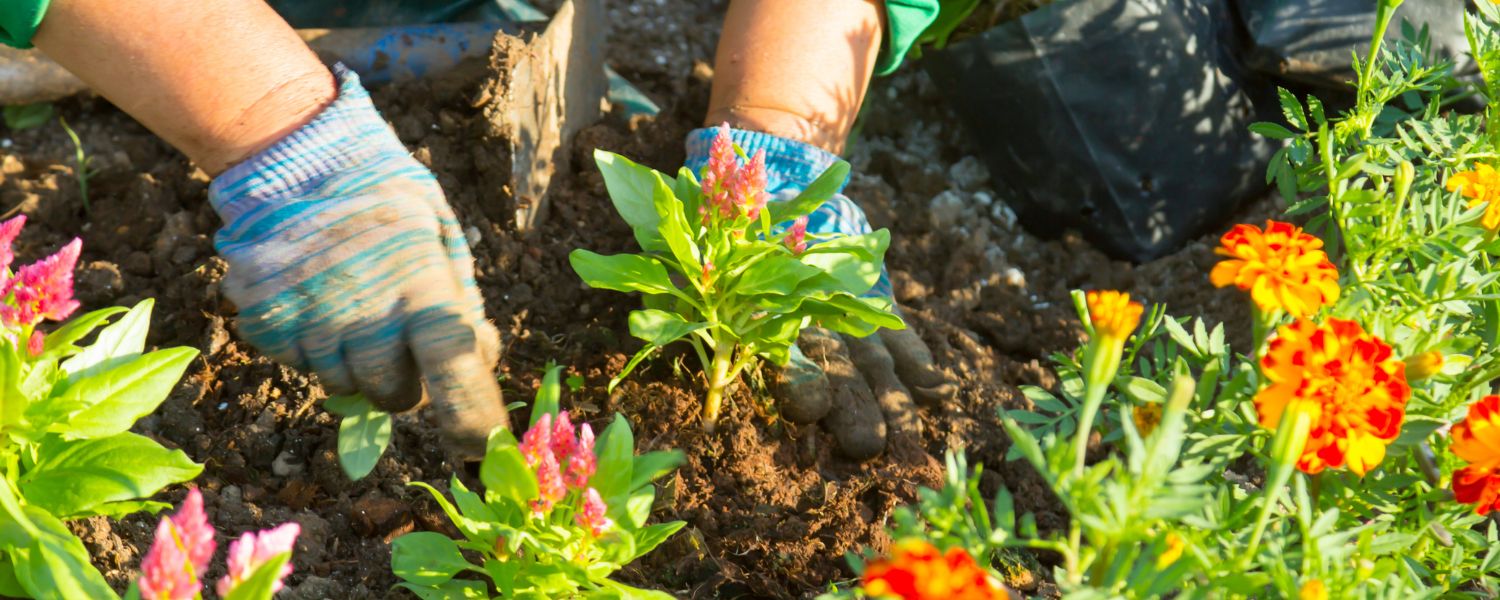
Summertime… and the gardening is easy
Check out our eight smart, simple tips to grow greener this summer. These easy garden hacks will help you create a more beautiful, bountiful outdoor space, while being easier on your time, pocket and the planet.
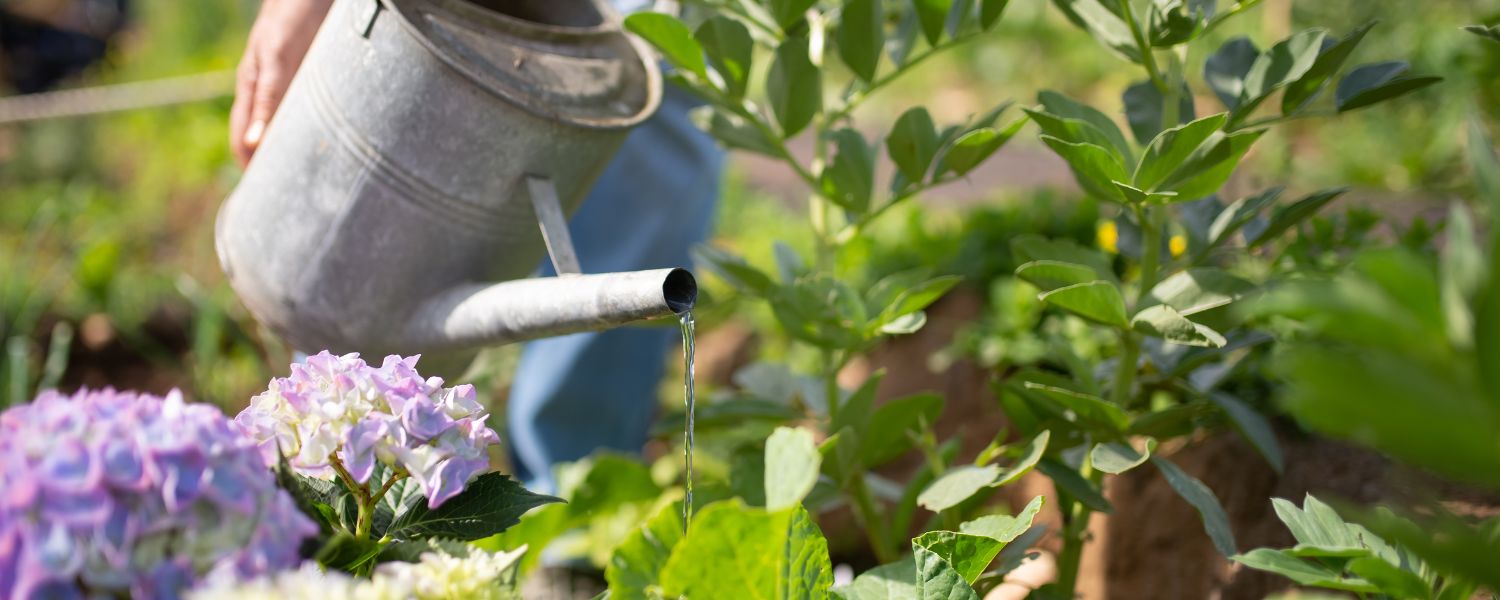
1. Water wisely to cut carbon and save time
Treating and pumping water to our taps uses energy and chemicals. And while Irish gardens rarely go long without rain, water supplies are under growing pressure from climate change and population growth, especially during the summer months. The good news? A few simple changes can help you use less water and do more with it.
- Collect rainwater in a water butt: it’s chemical-free, plant-friendly and always on hand.
- Install a dipping tank that doubles as a mini pond by adding aquatic plants.
- Water early or late to reduce evaporation.
- Mulch around plants to keep moisture in and weeds out.
- Let your lawn go brown in dry spells—it’ll bounce back.
A hose or sprinkler can use over 1,000 gallons (450 litres) of water in just one hour — that’s over 10 times more than a shower, a dishwasher cycle, a laundry load and ten toilet flushes combined !1.
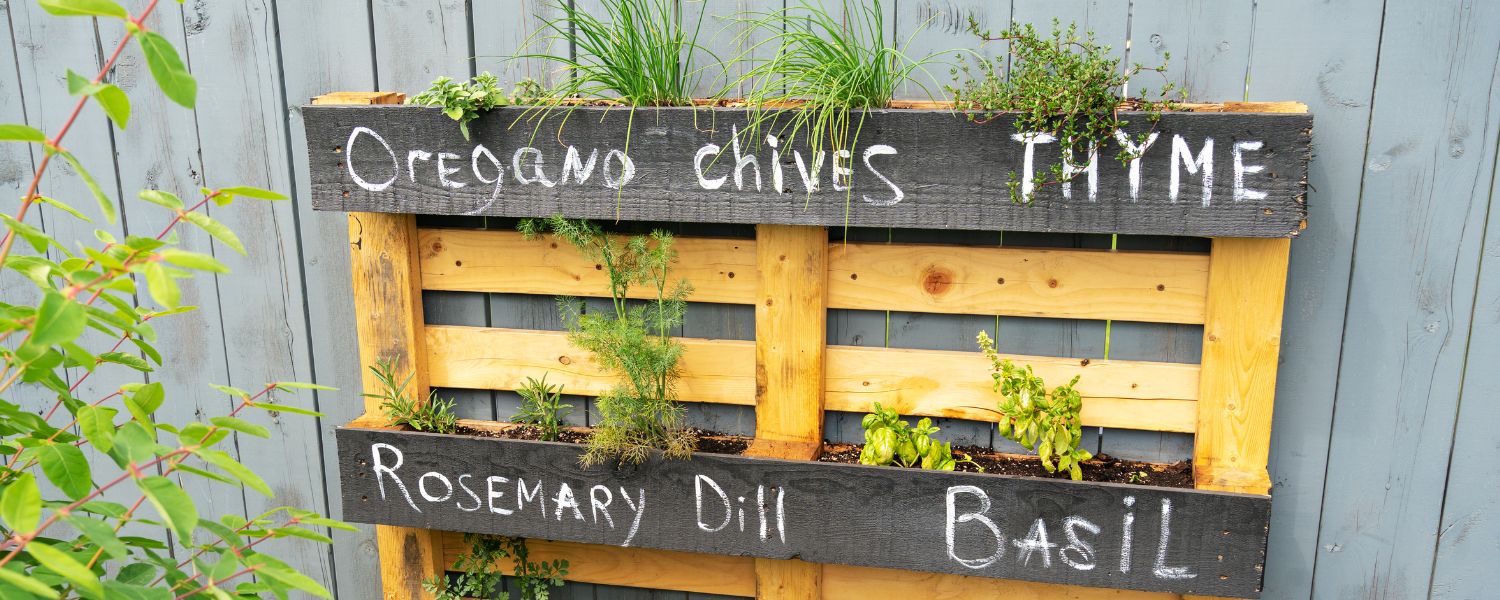
2. Thrift, reuse & recycle to cut waste and costs
Gardening doesn't need to be expensive or wasteful. With a little creativity, you can turn unwanted items into practical or decorative garden features that reflect your style and shrink your carbon footprint.
- Upcycle all kinds of containers such as old boots, teapots or tin cans as quirky planters, remembering to punch holes for drainage.
- Convert a chest of drawers into a tiered planter. Simply open the drawers at different levels and fill with soil.
- Hang old picture frames on fences for a decorative, rustic touch
Giving household furniture a second life saves six times more CO₂ than recycling it – and even more when compared with dumping it. 2,3.
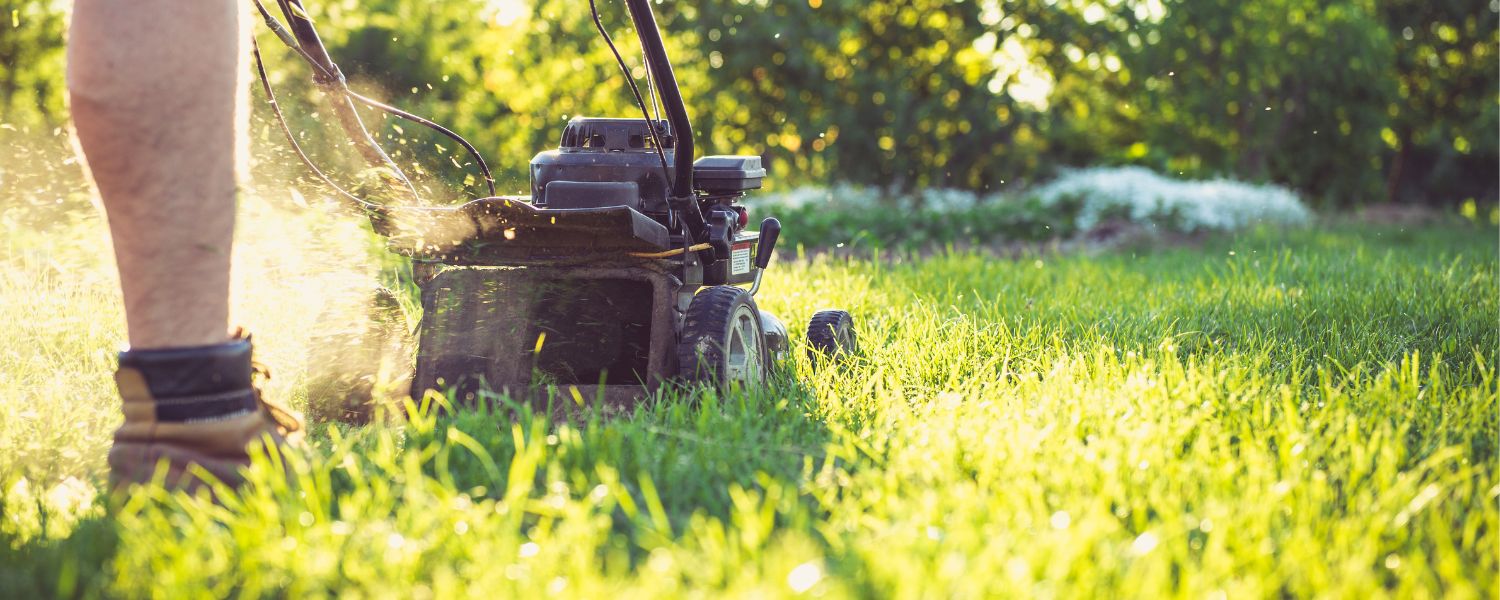
3. Switch to electric tools for a quieter, cleaner garden
Petrol-powered mowers and garden tools might be powerful, but they’re noisy and polluting. To reduce your carbon footprint and enjoy a quieter garden, try this
- Mow less often or leave a patch wild to support pollinators.
- Choose corded or battery-powered electric tools for mowing, trimming and strimming.
- Consider installing rooftop solar panels to enjoy lower cost, more eco-friendly gardening and living.
Mowing for one hour with a petrol mower can emit as much air pollution as driving a car 100 miles! 4
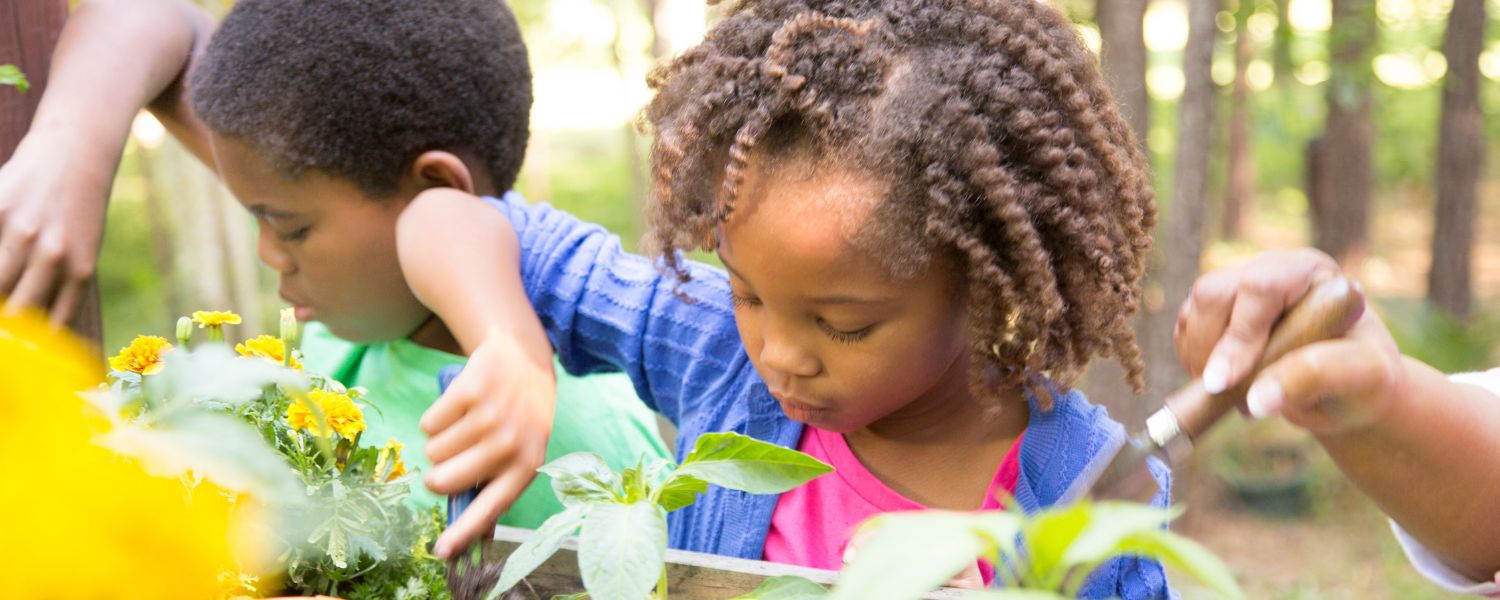
4. Garden naturally: less effort, more wildlife
Going chemical-free and choosing the right plants for the right places makes gardening easier and better for the planet. It supports healthy soil, boosts biodiversity and reduces your reliance on watering, pesticides and fertilisers.
- Pick resilient, low-maintenance plants suited to your garden conditions and soil.
- Use natural pest control: plant marigolds and nasturtiums and welcome birds and ladybirds.
- Make your own sprays using garlic or chillies and soap to deal with pests.
Many tough, beautiful plants like sedges, hardy geraniums, day lilies and rudbeckias can thrive through both drought and flooding.
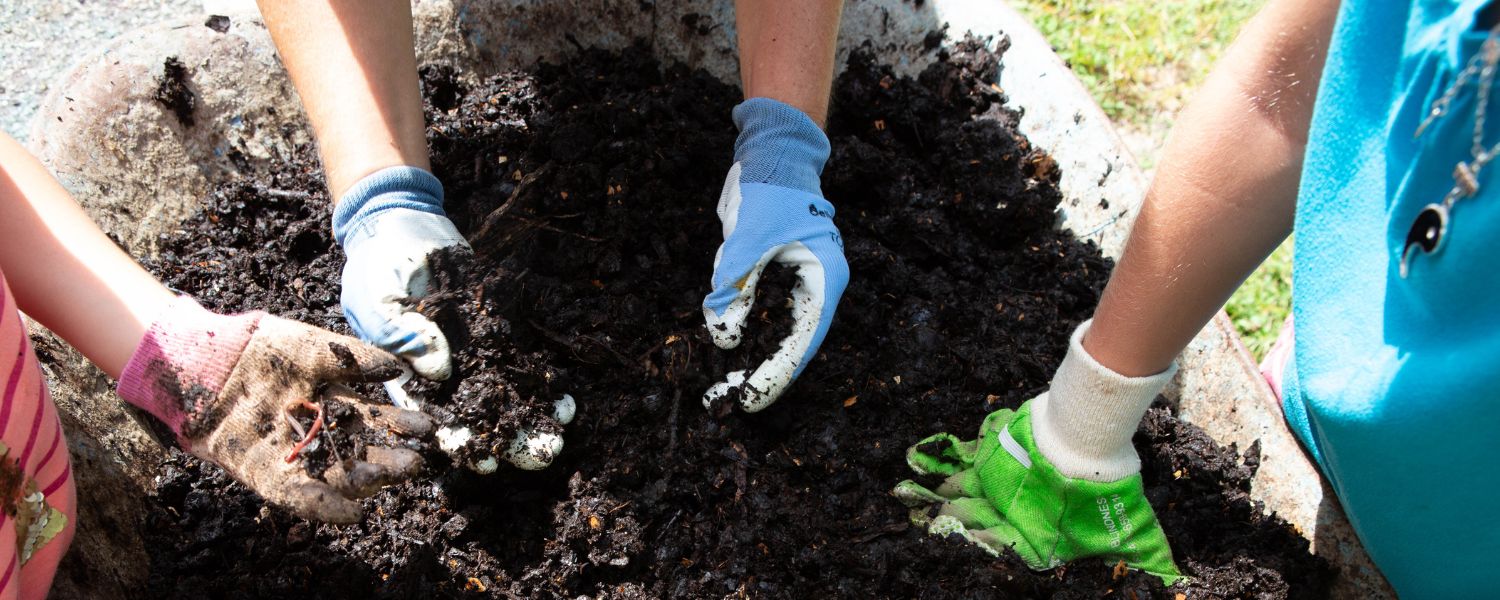
5. Ditch the peat and protect our bogs
Peat compost is familiar but far from eco-friendly. Harvesting peat bogs damages ecosystems and releases stored carbon into the atmosphere. Thankfully, there are greener alternatives.
- Choose composts clearly labelled “peat-free.”
- Make your own compost from garden clippings and food scraps.
- Look for alternatives like composted bark or green waste blends.
A single 60-litre bag of peat compost can emit more CO2 than a one-way flight from Dublin to London. 5, 6
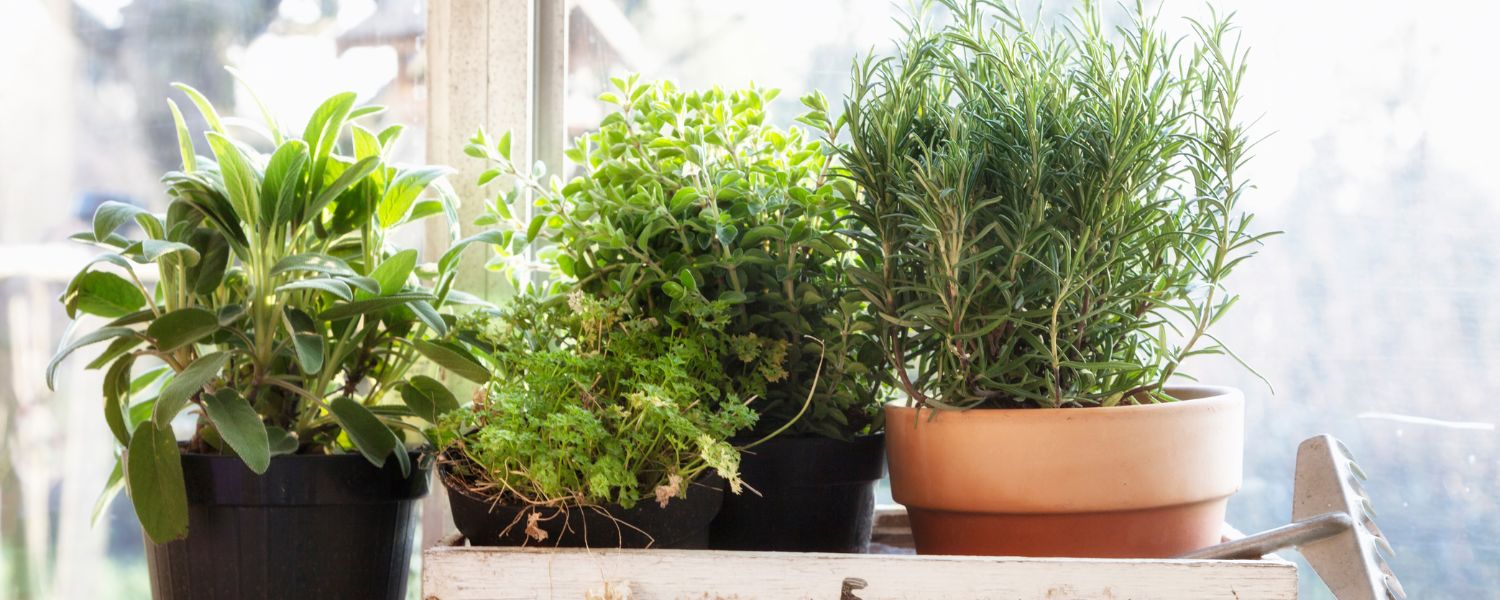
6. Grow your own to eat better and waste less
There’s nothing quite like eating food you’ve grown yourself. It cuts packaging and transport, saves money and connects you to the seasons. Even a small space can yield big results.
- Start with easy crops like salad leaves, herbs, courgettes or strawberries.
- Grow cutting flowers like sweet peas, calendula and cosmos for beautiful home bouquets or thoughtful gifts.
- Use vertical space, window boxes, hanging baskets and trellises if space is tight.
One courgette plant can pump out 10 pounds of produce — and a single tomato plant? Up to 12 kg of juicy fruit 7.
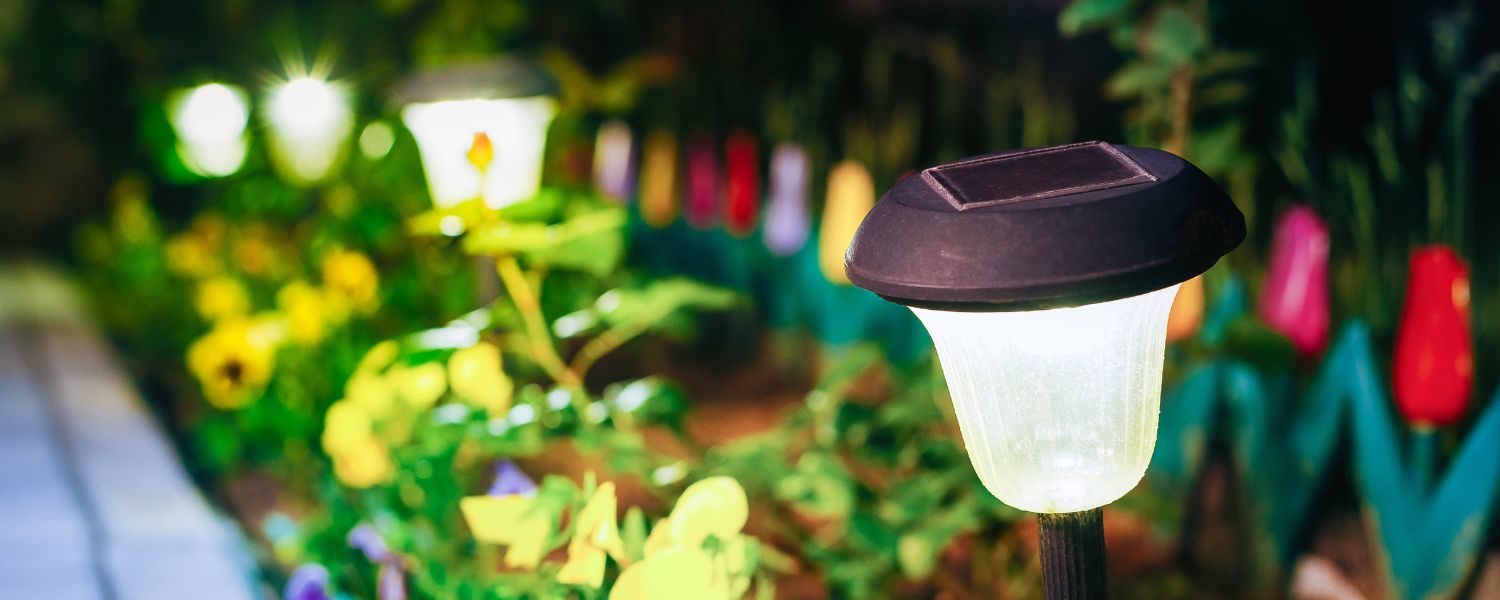
7. Light up your garden the green way
Solar garden lights are a smart, sustainable way to enjoy your outdoor space after dark, with no wires, energy bills or batteries to replace. Whether for ambience or safety, there’s a solar option for every corner of your garden.
- Use string lights, fence lights, spotlights or solar lanterns for different effects.
Check reviews and be sure to only buy good-quality options, so you can enjoy garden lighting that lasts for years – not just a season.
- To get the best performance in Irish weather, choose solar lights with good battery capacity, designed for cloudy climates, and position them in the sunniest spots to maximise charge.
Switching five incandescent 60W bulbs to solar could save you €35 this summer. 8, 9

8. Grow together: share the love (and the tools)
Gardening is even more rewarding when it’s social. Starting a garden club or simply chatting over the fence can help you learn faster, save money and build stronger local connections.
- Get together with friends or neighbours to swap seeds and plants.
- Team up to buy compost or tools in bulk.
- Trade advice, troubleshoot problems and celebrate your shared successes.
Here’s one to think about: 95% of plastic plant pots are binned after just one use 9. Growing from seed and swapping cuttings is a great way to reduce waste and save money.
Spruced up your garden? Now it’s time to bring those savings and sustainability indoors. Find out how an energy upgrade can make your home cosier, greener and more valuable — inside and out.